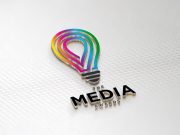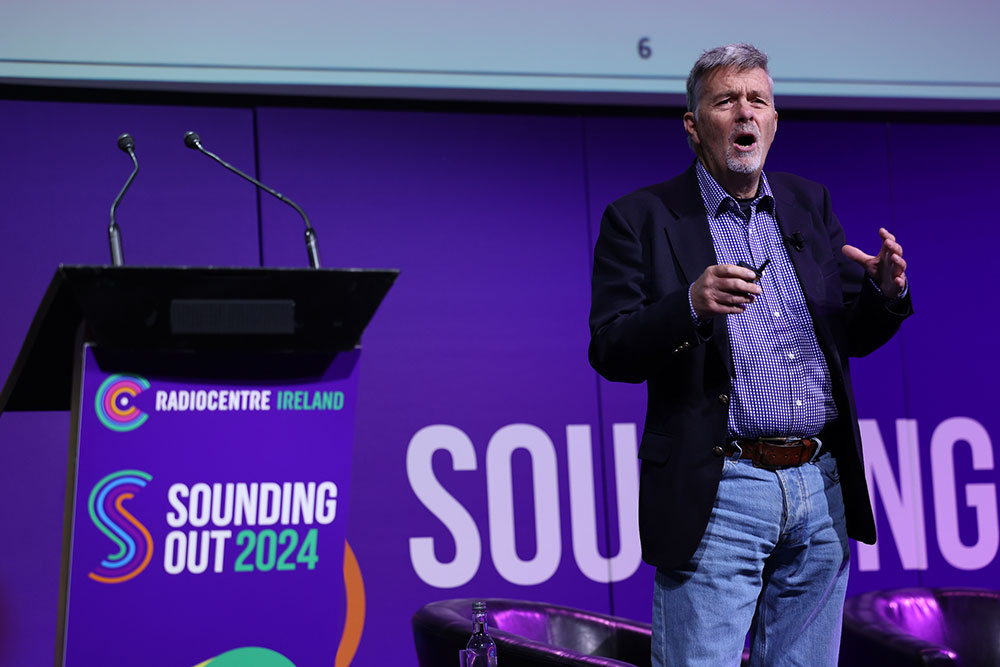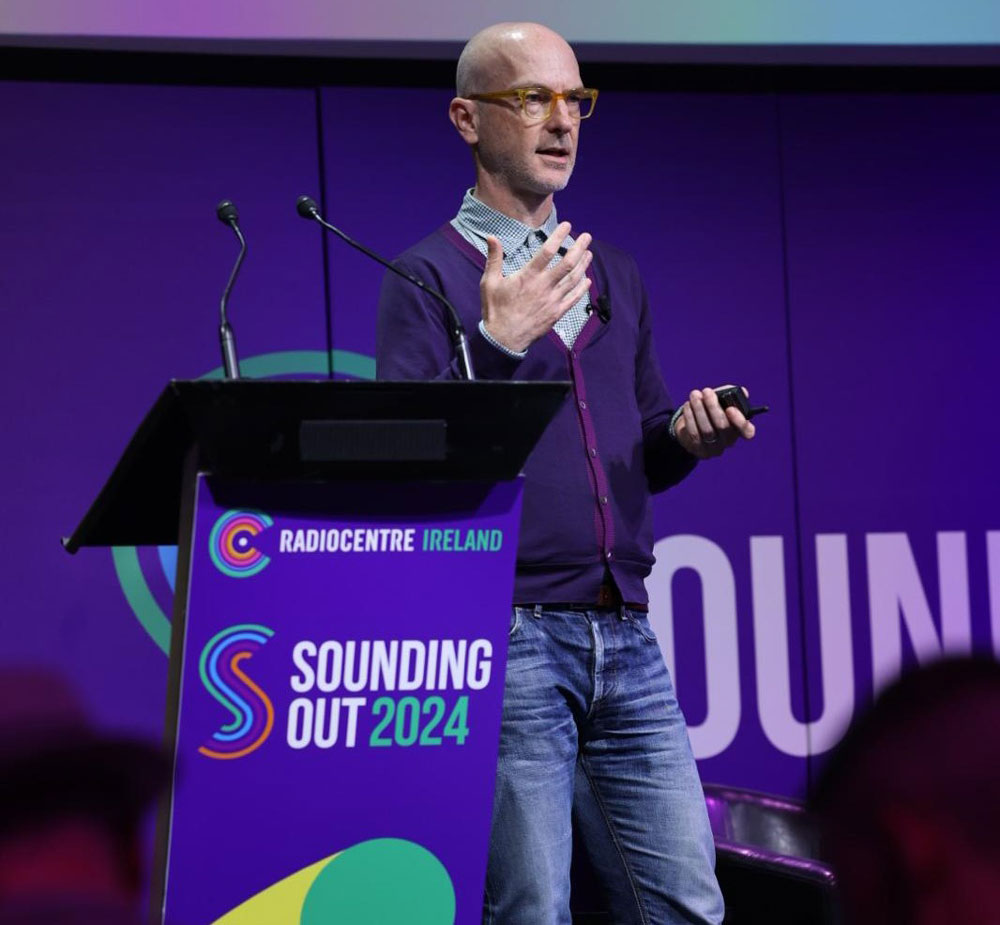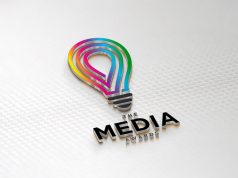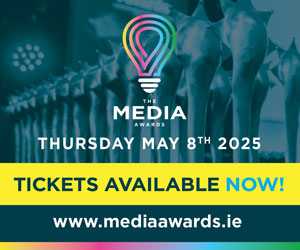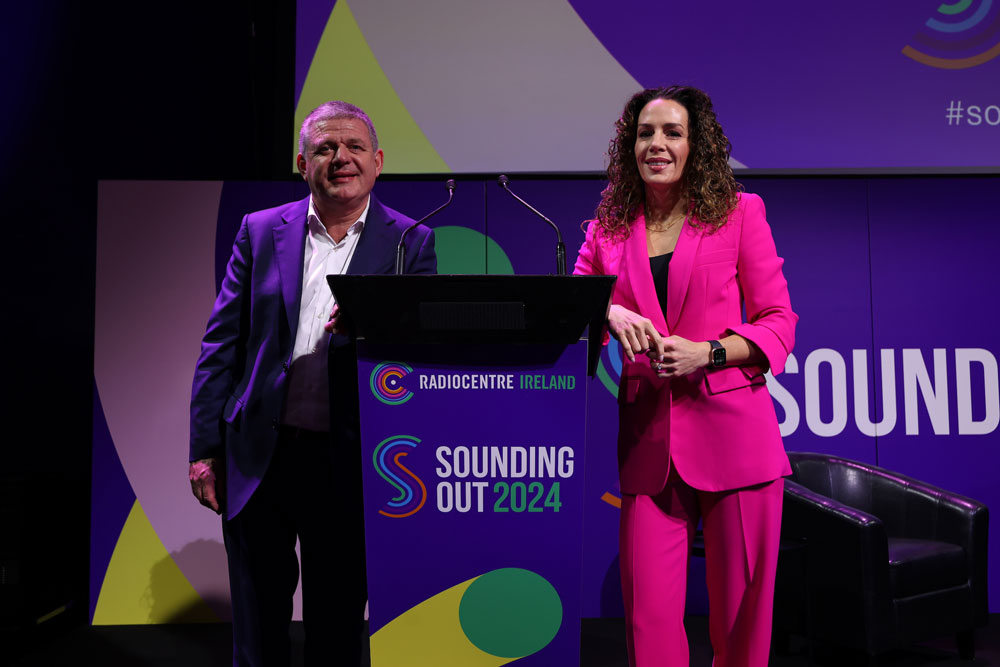 The annual Sounding Out 2024, which is organised by Radiocentre Ireland, took place in Dublin’s Mansion House this week. The event, which was a sell-out, was attended by a cross section of broadcasters, marketing and agency professionals with an impressive line-up of speakers drawn from the industry to make the case for audio advertising.
The annual Sounding Out 2024, which is organised by Radiocentre Ireland, took place in Dublin’s Mansion House this week. The event, which was a sell-out, was attended by a cross section of broadcasters, marketing and agency professionals with an impressive line-up of speakers drawn from the industry to make the case for audio advertising.
The event was opened by Ciarán Cunningham, CEO of Radiocentre Ireland, who introduced the speakers and the topics that were up for discussion like how advertising really works, how does attention work when it comes to advertising and whether or not it really matters.
Setting the scene for the ensuing proceedings, Cunningham explained that audio is in a greater position than most to stir consumer passions because of the intimacy of the relationship listeners have with their audio and radio stations in particular.
He added that “audio is a warm and friendly place which can make you laugh and make you cry – often at the same time. It is a place where you are simultaneously in a one-to-one uncluttered relationship and yet part of a much greater, shared experience. The power of a listener on their headphones, their air pods, in their car listening to a single uninterrupted and uncluttered message is very powerful. And that emotional connection in audio is something advertisers should take more seriously.”
With Sarah McInerney acting as MC for the day, the first keynote speaker was Robert Heath, author of the seminal book, The Hidden Power of Advertising. Heath urged advertisers who currently worry only about attention to think again. Advertising which is witty and entertaining achieves greater cut-through against every measure. And, in contrast to what many advertisers believe, it is that emotional connection, rather than recall, which is the key to purchasing decisions.
Craig Mawdsley, founder, craig and bridget, continued on this theme by explaining that the type of fame that works for advertising is the low attention process of having been exposed to a brand over a long period of time, a kind of fame that is not been noticed, but rather a fame that seeps into someone’s life day after day, gradually making an impact. The key objective is to get brands noticed without noticing how you are doing it, without needing attention.
In addition, Andrew Tindall, System1 presented research that showed conclusively why positive emotions are so important for audio advertising.
The declining use of humour in all advertising was identified by Bridget Angear, founder, craig and bridget, as a noticeable trend – reducing from 53% of campaigns in 2001 to just 34% of campaigns in 2020. She also presented IPA data going back 10 years and showed that business cases that used humour demonstrated greater positive business effects compared to cases that did not use humour.
This is an area where radio can be the real exception because of the intimacy of the relationship listeners have with their radio stations. Radiocentre Ireland’s new study with research company Differentology backed up this finding with impressive statistics on the power of adding audio into the planning schedule. Audiovisual ad campaigns were boosted by 22% once audio/radio was added to the planning mix.
Elsewhere, Ralph van Dijk, founder Eardrum, introduced the four C’s required for a clear audio strategy, Codes, Consistency, Consolidation and Creatives. Regarding Codes, he explained that sound is still a missed opportunity for a lot of brands. Strong brand linkage and recall go way up when brands use distinctive sounds.
Meanwhile, Steve Keller, SiriusXM explained that “we live in a world where capturing consumer ears is just as important as capturing their eyes.” Adopting practices that harness the profound physiological and emotional impact of sound to influence consumer behaviour, shape brand perception, and build long-term brand equity can have a profound impact on a brand’s profitability once audio was added to the planning mix, he said.



